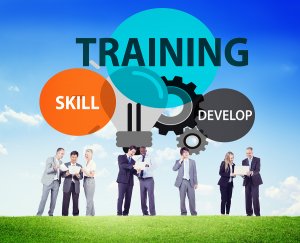 It is not just trainers who need to understand how people really learn. Every manager, supervisor and team leader also needs to understand this, as they are responsible for ensuring their team members gain the knowledge and develop the skills necessary for high performance in a changing business environment. So in this article we will look at the seven principles which underlie effective training and development.
It is not just trainers who need to understand how people really learn. Every manager, supervisor and team leader also needs to understand this, as they are responsible for ensuring their team members gain the knowledge and develop the skills necessary for high performance in a changing business environment. So in this article we will look at the seven principles which underlie effective training and development.
In many workplaces employees are expected to learn by memorising information that is presented to them (either in written or verbal form) and are then expected to be able to apply this information on demand. But does this approach lead to effective learning? The answer, according to Ulrich Boser (author of the book Learn Better: Mastering the Skills for Success in Life, Business, and School, Or, How to Become an Expert in Just about Anything) is an emphatic NO.
Boser and other learning experts agree that learning is an active not a passive process. Therefore, the first principle for more effective learning is to engage the learner in the learning process. One method of doing this is through the process of “retrieval practice” where we give the learner the opportunity to explain and summarise what they have just learned. This explanation can be given verbally to another person, or by writing their own (summary) notes.
The second principle of effective learning is recognising the effect of prior experience. The manner in which we think about a subject is strongly influenced by our previous knowledge and experiences. This prior knowledge can, when it comes to learning, be both a blessing and a curse. On the one hand, prior knowledge makes it easier for learners to relate to the topic we are trying to teach them, on the other hand that same prior knowledge can make them reject new concepts that do not fit with their previous experiences. This latter scenario often results in a “yes, but…” response when the learner is asked to consider a new approach.
The third principle of effective learning is do not overload people with information. The human short–term memory can be quickly overwhelmed. Larger topics should be broken up into smaller chunks, which is why modular development programmes, where training is interspersed with work based practice, are so effective.
The fourth principle of effective learning is to recognise that people will naturally think they know more than they really do. Many a sales person will book themselves onto an advanced selling skills course when in reality they do not fully understand the basics of effective selling. This is a waste of your training budget!
This overconfidence in our knowledge and abilities also creates a barrier to our development. Accurate assessment of the learners current abilities allows you to plan what they need to learn and to monitor the progress of their learning.
Just as it is hard for people to be objective about their current abilities, people also find it difficult to give themselves feedback. That is to examine their own actions and see precisely where they are going wrong. So principle five is that targeted, constructive feedback from others is crucial for development.
Anyone supporting the learning of someone else (be they a trainer, manager or supervisor) must create opportunities to give feedback and know how to do this constructively.
The sixth principle of effective learning is that we need to provide opportunities for remembering what has just been learned.
When we first learn something we will forget a lot of what we have just learned. This is natural, but frustrating, for both learner and trainer! The good news is that the more we have the opportunity to “relearn” something the more we will remember. This means that anyone training someone else must be prepared to provide opportunities to “re-remember” and “re-learn” - just because someone went on a course last year does not mean that they won't benefit from a refresher course!
The final, seventh, principle of effective learning is to create a comfortable and safe learning environment. It is known that our body and feelings impact our thoughts. So how our learners feel when learning will impact their ability to learn. A skilled trainer knows how to create the right environment which both supports and challenges people.
We can design and deliver effective training courses for you. Please get in contact with your needs.
